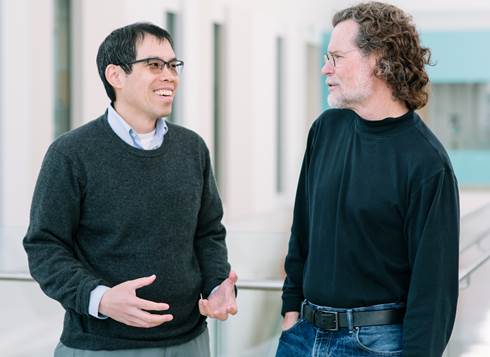 Launched in April 2016 and seeded by a $250M grant from Silicon Valley entrepreneur Sean Parker, the Parker Institute for Cancer Immunotherapy (PICI) is an extraordinarily ambitious program bringing together the nation’s top immunotherapy cancer researchers and clinicians to accelerate the development of breakthrough immune therapies capable of turning cancer into a curable disease. UCSF immunologist, Jeffrey Bluestone, PhD, is president and CEO of PICI. The core of the institute is built around 6 of the country’s top cancer centers – University of California at San Francisco, Memorial Sloan Kettering Cancer Center, Stanford Medicine, UCLA, the University of Pennsylvania and the University of Texas MD Anderson Cancer Center. The organization is structured to streamlined the testing of new ideas and out-of-the-box thinking, facilitating collaboration across the sites including sharing of resources and expertise and the improved execution of multi-centered, complex cancer immunotherapy clinical trials, offering patients access to cutting edge therapies.
Launched in April 2016 and seeded by a $250M grant from Silicon Valley entrepreneur Sean Parker, the Parker Institute for Cancer Immunotherapy (PICI) is an extraordinarily ambitious program bringing together the nation’s top immunotherapy cancer researchers and clinicians to accelerate the development of breakthrough immune therapies capable of turning cancer into a curable disease. UCSF immunologist, Jeffrey Bluestone, PhD, is president and CEO of PICI. The core of the institute is built around 6 of the country’s top cancer centers – University of California at San Francisco, Memorial Sloan Kettering Cancer Center, Stanford Medicine, UCLA, the University of Pennsylvania and the University of Texas MD Anderson Cancer Center. The organization is structured to streamlined the testing of new ideas and out-of-the-box thinking, facilitating collaboration across the sites including sharing of resources and expertise and the improved execution of multi-centered, complex cancer immunotherapy clinical trials, offering patients access to cutting edge therapies.
The UCSF PICI program is directed by Lewis Lanier, PhD, the J. Michael Bishop, MD, Distinguished Professor and chair of UCSF’s Department of Microbiology and Immunology, which is ranked #2 worldwide by US News & World Report and co-Directed by Lawrence Fong, MD, Efim Guzik Distinguished Professor in Cancer Biology and co-Leader of UCSF Cancer Immunotherapy Program.

The UCSF PICI program consists of 23 laboratories, who in collaboration with their colleagues both at UCSF and the other PICI sites, are driving research in the areas of:
- Developing novel TCR-targeted T cells
- Understanding the immune biology of immunotherapies and mechanisms of drug resistance
- Identifying novel targets
- Developing new technologies to advance the research of immunotherapy
- Building the next generation of CAR T-cells
